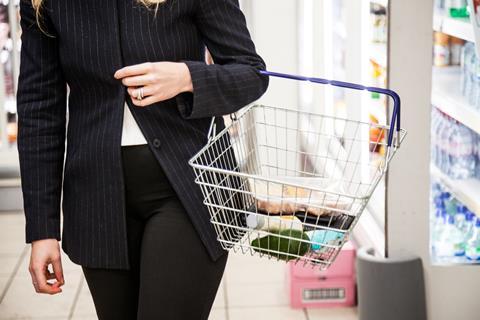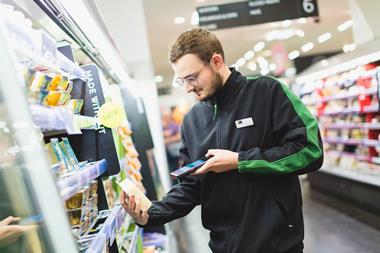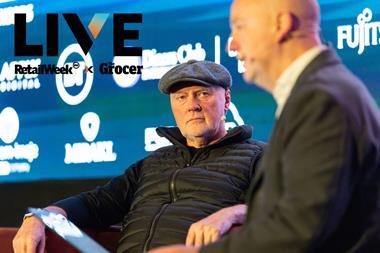
Grocery sales at UK supermarkets fell 4.1% over the four weeks ending 26 March, NielsenIQ observed in its most recent Total Till, published last week.
This is the lowest growth recorded so far this year – although we must remember we are still measuring against the high lockdown comparatives in 2021.
This month marks the end of measuring against these comparatives, so from next month we can expect to gain a clearer picture of how the industry is faring, which could also indicate a potential return to growth later this spring.
What we know so far is there has been a gradual normalisation of post-pandemic shopping behaviours, which appears to now be complete. In our latest data, there was a decline in online grocery sales, which fell 19% compared with the same period last year.
Consumers are now finding a good balance between preferred shopping channels, and NielsenIQ data highlights store visits increased by 5% over the last four weeks, and the overall online share of sales has stabilised at 12.4%.
Consumers shift further towards private label products
As concerns over the cost of living increase, we are also seeing British shoppers seeking to make savings through their weekly grocery shop.
One of the biggest takeaways from our latest NielsenIQ Total Till is that in the last four weeks, UK shoppers have been shifting spend towards supermarket private label products.
Our data shows that the share of sales for fmcg private label products has risen from 52.4% to 53.2%, with sales of private label products in the ambient grocery category increasing by 3.3% in the last four weeks. This is a significant shift because brands traditionally dominate with a 60% share of total sales in this category.
Private label products not only attract shoppers through their low price points, but also give shoppers choice from economy products through to premium ranges, and we expect to see this extend to more categories, even those where brands have dominated.
Price and savings set to become deciding factor for more shoppers
As household budgets tighten, we can also expect to see more consumers ‘trading down’ in terms of products and looking to switch to cheaper alternatives, most likely in some household and non-edible grocery categories.
Consumers will also likely turn to retailers that can offer value for money. This will not only be discounters like Aldi or Lidl or other value retailers such as Poundland, Home Bargains and B&M, but any supermarket with a strong price message, for example retailers offering differential price discounts for users of loyalty apps, reward threshold vouchers or fuel vouchers.
A lot of this shifting grocery spend may be due to consumers simply having a different basket mix compared with last year. However, the rise in demand for private label products is turning the tide for retailers who may see this as an opportunity to expand their private label offer, and one for brand manufacturers to consider other ways to compete, for example innovation.
With consumers trading down and prioritising value for money, retailers must also make a concerted effort to retain and reward customers through engaging loyalty offerings and personalised discounts. So it is crucial to have a comprehensive understanding of shopping behaviours through actionable data and insight, in order to forecast when, where and how consumers’ habits evolve and determine how to take appropriate action.
As we start a new normal where inflation sets the parameters on growth, the industry will need a deeper connection with the needs of shoppers to weather this storm.



















No comments yet